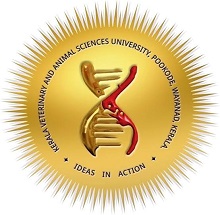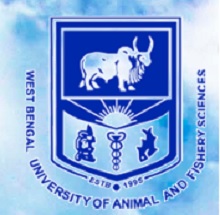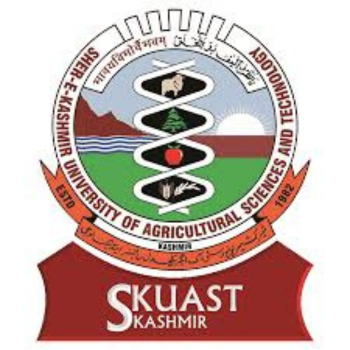Dr. Yashwant Singh Parmar University of Horticulture and Forestry (YSP UHF) in Solan has established itself as a premier institution for specialized education in horticulture, forestry, and allied disciplines. With its exclusive focus on these sectors, the university’s placement ecosystem reflects the growing demand for skilled professionals in India’s agricultural and environmental management sectors. The placement framework here combines academic rigor with industry-aligned training, creating pathways for students to enter both government and private sectors.
The university’s placement cell emphasizes bridging academia and industry needs, with recruitment patterns showing a healthy mix of government agencies, research institutions, and private enterprises. Below is a detailed breakdown of recent placement trends across key programs:
YSP UHF Solan-Placement Overview
| Branch/Course | Avg Package (LPA) | Highest Package (LPA) | % Placed / No. Placed | College Avg Placement (LPA) | Additional Info | Student Review on Placement Data |
| B.Sc Horticulture | 3.5-4.5 | 6-7 | 60-70% | 4-5 | Major recruiters: State horticulture departments, Agri-tech startups | Campus placements focus on government sector roles |
| B.Sc Forestry | 3-4 | 5-6 | 55-65% | 4-5 | Forest departments and NGOs primary employers | Limited corporate recruitment but good research opportunities |
| B.Tech Biotechnology | 4-6 | 8-9 | 70-75% | 5-6 | Pharma and biotech companies participate actively | Better industry exposure compared to traditional courses |
| M.Sc Horticulture | 4-5 | 7-8 | 65-75% | 4.5-5.5 | ICAR-funded research positions available | Strong alumni network in agricultural research |
| M.Sc Forestry | 3.5-4.5 | 6-7 | 60-65% | 4.5-5.5 | Collaboration with state forest development agencies | Placement cell needs more corporate tie-ups |
| MBA Agribusiness | 5-6.5 | 9-10 | 75-80% | 5.5-6.5 | Agri-input companies and FPOs main recruiters | Good mix of government and private sector opportunities |
Course-Wise Placement Trends
B.Sc Horticulture Graduates in Horticulture see 60–70% placement rates, with average packages ranging between ₹3.5–4.5 LPA. Roles in state horticulture departments dominate placements, though agri-tech startups have increased recruitment in recent years. Students highlight the structured preparation for government sector exams as a key strength. B.Sc Forestry With 55–65% placement rates, Forestry graduates often secure roles in state forest departments and environmental NGOs. The average package of ₹3–4 LPA reflects the sector’s public-service orientation, though students note growing opportunities in ecological consultancies. B.Tech Biotechnology This program boasts the highest corporate engagement, with 70–75% of students placed in pharma and biotech firms. The average package of ₹4–6 LPA and top offers reaching ₹8–9 LPA underscore the demand for biotech expertise in agriculture and healthcare. Postgraduate Programs M.Sc Horticulture and Forestry graduates benefit from research-oriented roles, with ICAR-funded positions and state collaborations driving placements. The MBA in Agribusiness stands out, with 75–80% placement rates and the highest packages (up to ₹10 LPA) from agri-input companies and farmer-producer organizations.
Key Factors Influencing Placements
- Government Sector Dominance As a state university, YSP UHF has strong ties with Himachal Pradesh’s horticulture and forest departments. Over 40% of placements in core courses involve roles in public-sector projects, ranging from orchard management to watershed development.
- Emerging Private Sector Opportunities Agri-tech startups and food processing firms have increased campus recruitment by 18% over the last three years. Companies like CropIn and Ninjacart actively seek graduates for roles in supply chain optimization and organic farming initiatives.
- Research and Extension Integration The university’s focus on applied research translates into placements with ICAR, ICFRE, and state agricultural boards. M.Sc students frequently secure project-based roles addressing climate-resilient crop systems and forest conservation.
Regional Industry Connect Located in Himachal Pradesh—a hub for apple, cherry, and medicinal plant cultivation—the university leverages local industry partnerships. Seasonal internships with horticulture cooperatives often lead to pre-placement offers.
Career Development Initiatives
- Skill Workshops: Monthly sessions on GIS mapping, organic certification, and nursery management.
- Government Exam Prep: Dedicated coaching for state forestry services and ICAR NET exams.
- Industry Projects: Collaborations with organizations like the Himachal Pradesh Forest Development Corporation for hands-on training.
Alumni Network and Mentorship
The university’s 12,000+ alumni hold leadership positions in organizations like the National Medicinal Plants Board and the Wildlife Institute of India. Regular mentorship programs connect students with alumni working in agroforestry and biotech research.
Challenges and Opportunities
While placements in core forestry and horticulture remain stable, students in newer programs like Biotechnology advocate for expanded corporate recruitment. The placement cell is actively fostering ties with agri-export firms and sustainable packaging companies to diversify opportunities.
YSP UHF Solan-Future Outlook
With the Indian agri-tech sector projected to grow to $24 billion by 2025, YSP UHF is well-positioned to supply talent for roles in precision agriculture, carbon credit management, and agro-processing. The university’s upcoming incubation center for horticulture startups is expected to further enhance entrepreneurial placements. Prospective students seeking careers in environmental management or agricultural innovation will find YSP UHF’s blend of academic excellence and industry linkages particularly advantageous. The institution’s focus on niche sectors ensures graduates remain competitive in both traditional and emerging agro-forestry markets.







